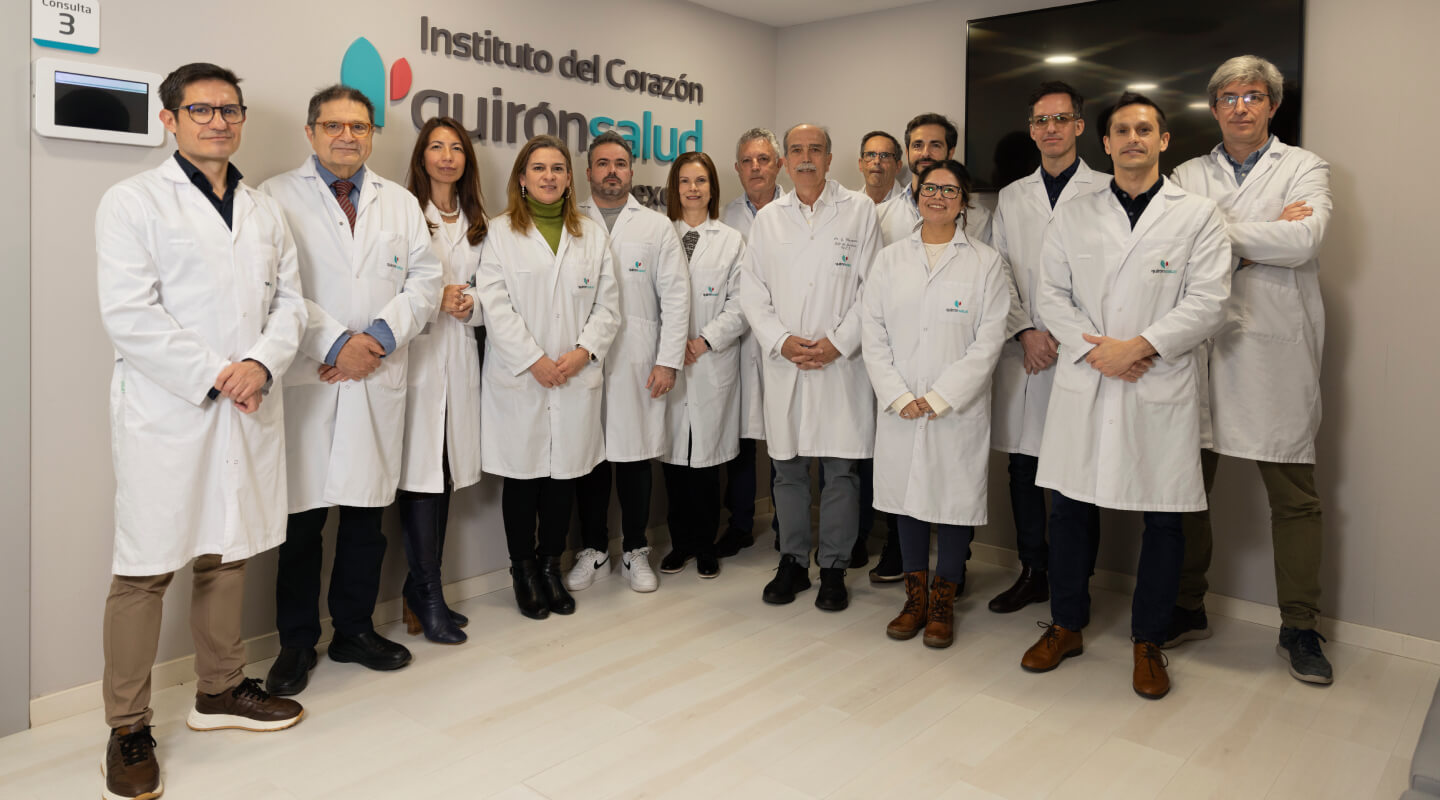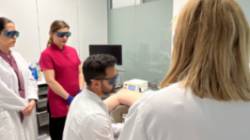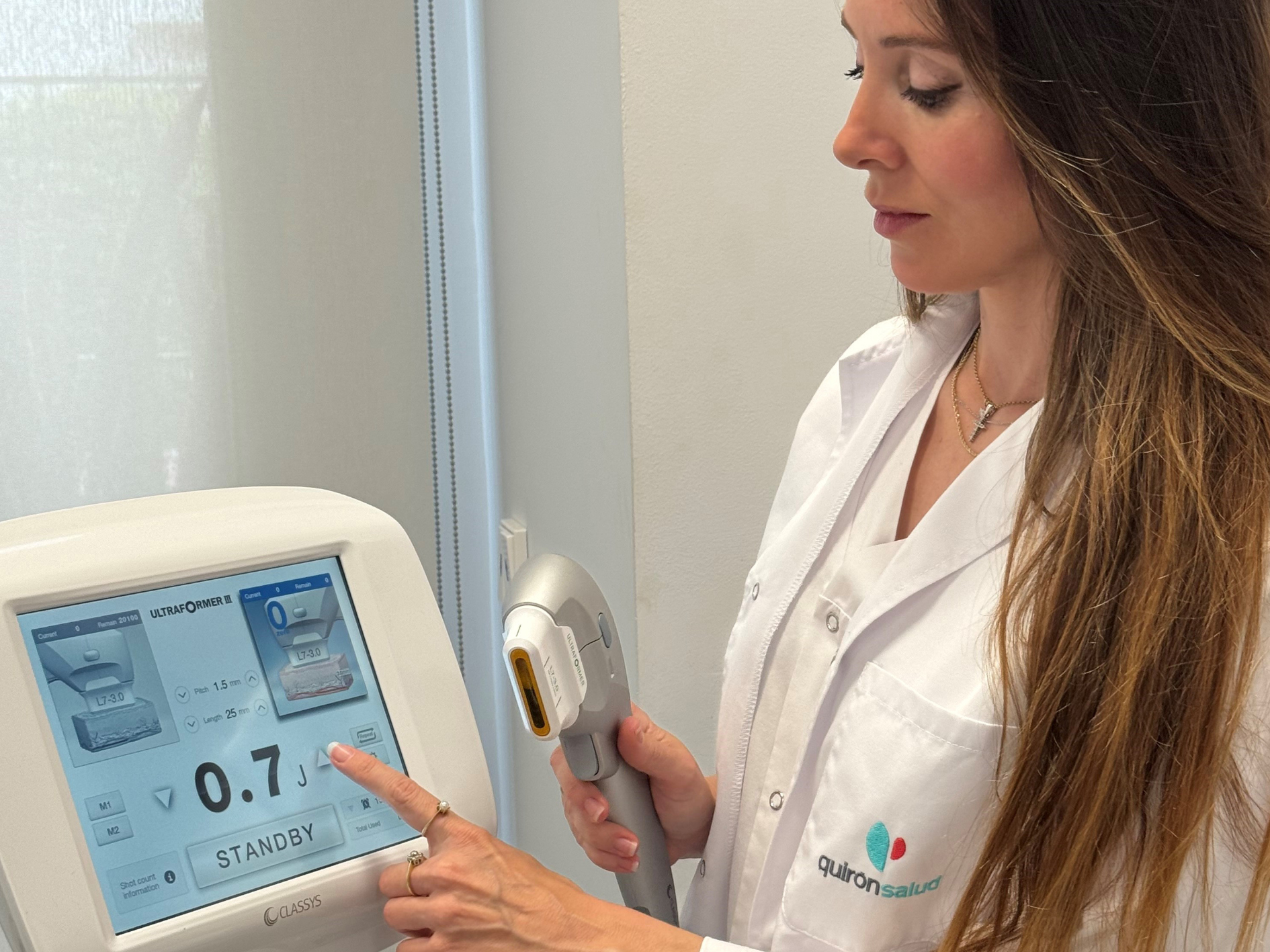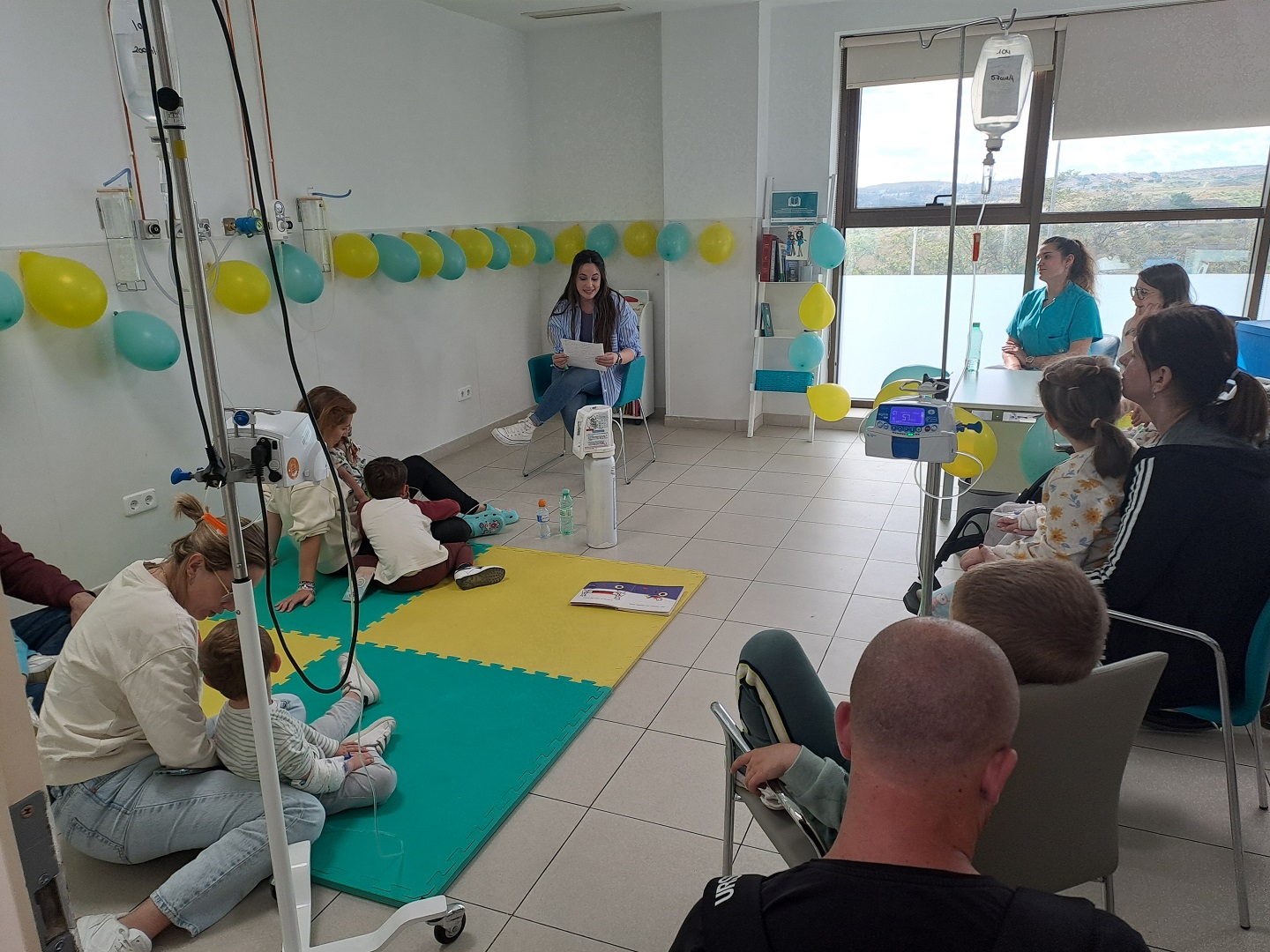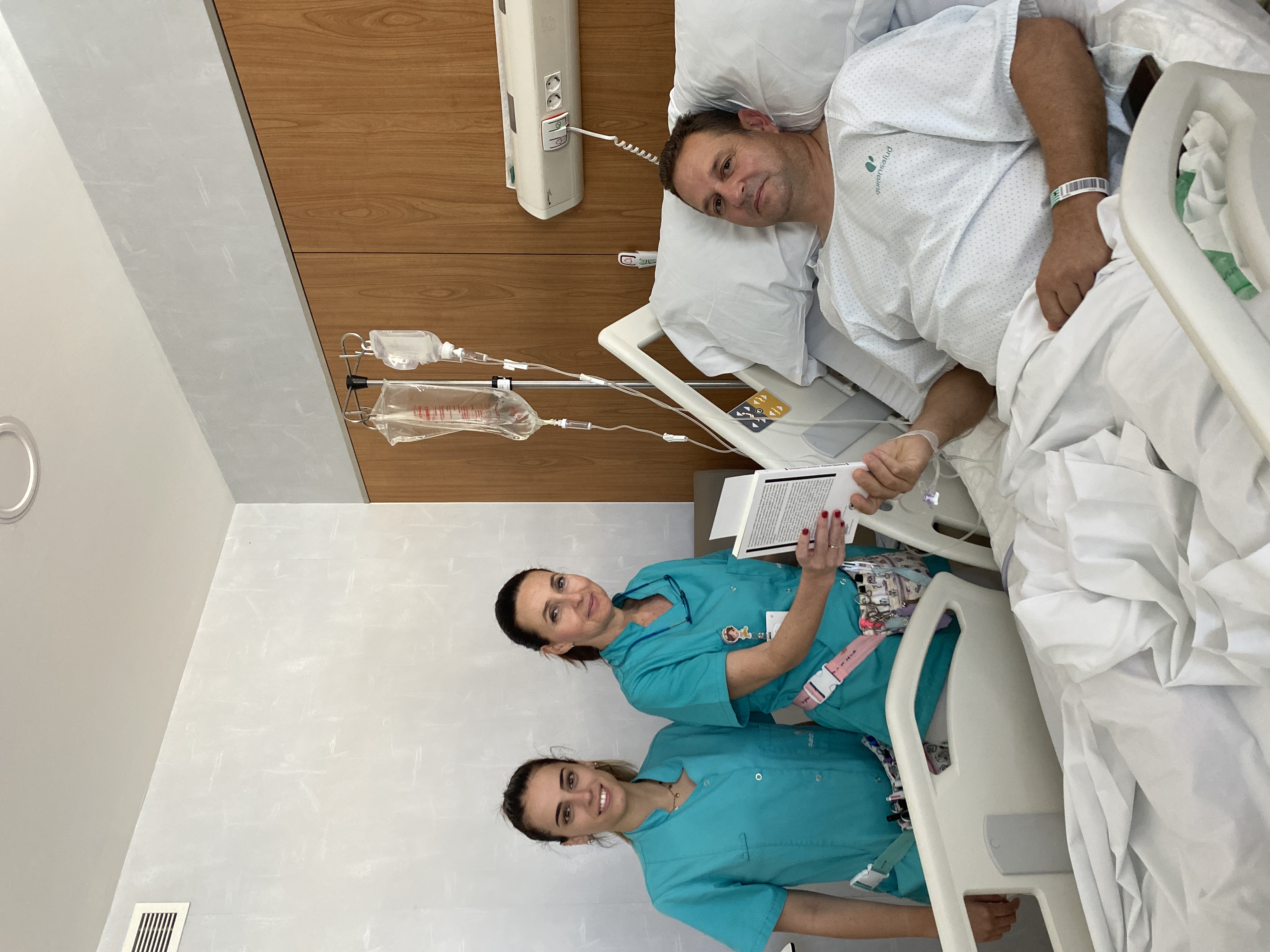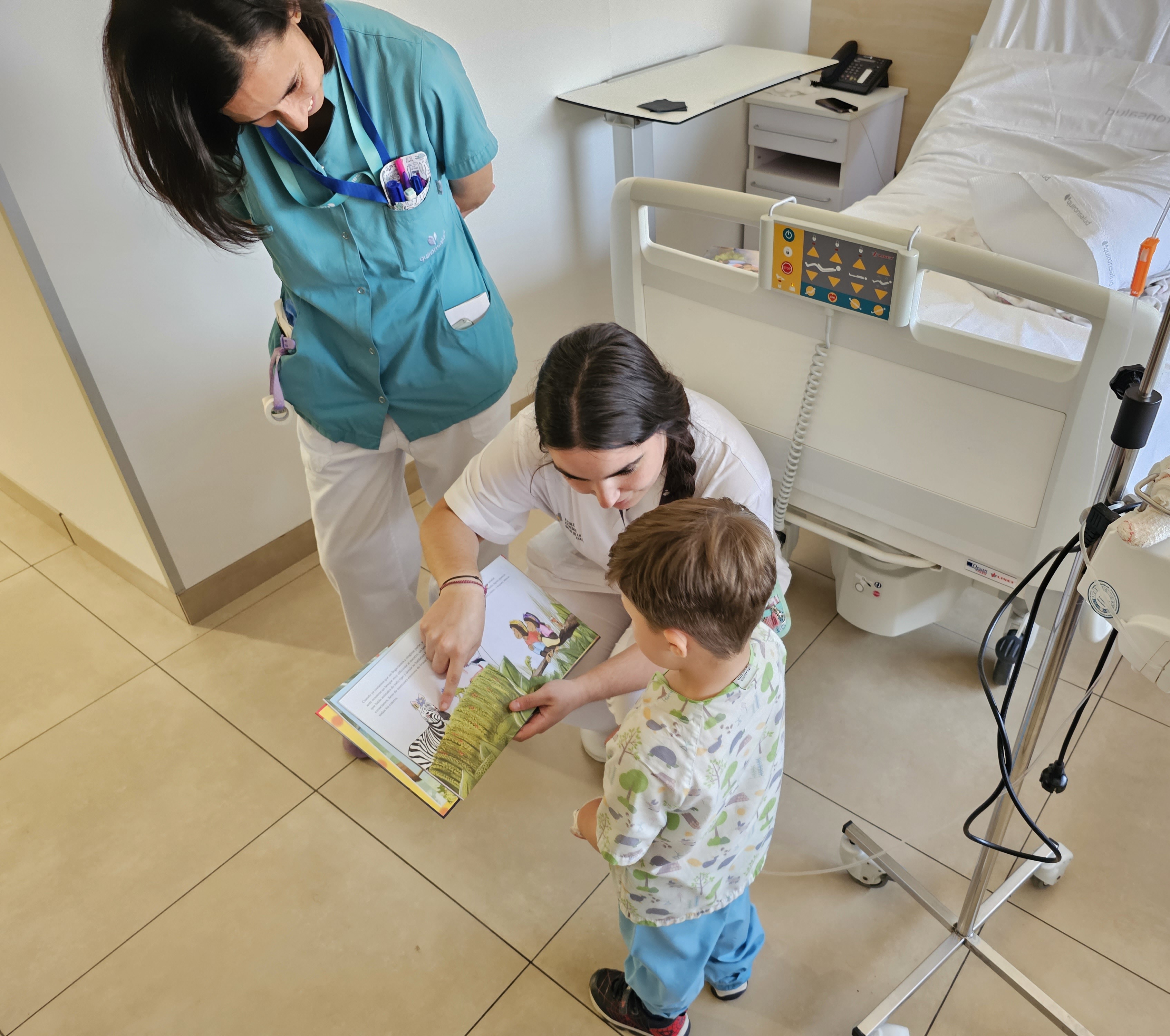Quirónsalud Valencia launches a Precision Medicine Unit
The oncology service of the Quirónsalud Hospital in Valencia has set up a Precision Medicine Unit thanks to which the specialists will be able to offer a more precise and effective treatment for each patient based on the genetic profile of the cancer and the individual.
Cancer is a genetic disease caused by changes in DNA that control the way cells function. "These changes can be inherited, but most arise randomly during a person's life, either as a result of errors that occur when the cells divide or exposure to external carcinogens that damage the DNA," explains Dr. Ángel Guerrero. , specialist of the Oncology Service of Hospital Quirónsalud Valencia and head of the Precision Medicine Unit. Currently we know the vast majority of genetic alterations, or mutations, responsible for the origin, maintenance and development of cancer. "These mutations can make the tumor particularly sensitive, or resistant, to a certain drug, explains Dr. Guerrero," but thanks to precision medicine we are able to know the characteristics of the genetic alterations of each tumor and recognize the profile mutational of each patient that makes it possible to choose the therapy with the greatest chance of success and to flee from standardized therapies that, in many cases, can be ineffective in the treatment ".
To obtain a comprehensive genomic report of the tumor the patient is given the FoundationOne test, the only one approved by the US FDA, on a sample of tumor tissue, ideally on a recent metastatic lesion. "In circumstances in which it is difficult to obtain tumor tissue, a" liquid "biopsy can be performed and analyze, in the blood, using the Foundation ACT test, the circulating tumor DNA of the 62 most important genes involved in cancer," adds the specialist.
Precision oncology is particularly effective in patients with advanced non-small cell lung cancer, since this is a pathology in which there is a great development of very effective drugs, directed to very specific mutations. "Likewise, it is very effective in common tumors that have exhausted the therapeutic options collected in clinical guidelines, infrequent and aggressive tumors with few possibilities of response to conventional treatment and tumors of unknown origin," concludes Dr. Guerrero.
Current events
Current events
- 25 de abril de 2024
El Hospital Universitari Dexeus inaugura el nuevo Instituto del Corazón Quirónsalud Dexeus en su compromiso...
El Instituto del Corazón Quirónsalud Dexeus reúne, en una misma planta de 650 m2, equipamientos renovados para el control de afecciones cardíacas complejas mediante los abord...Hospital Universitari DexeusCardiología - 25 de abril de 2024
La Fundación Jiménez Díaz ofrece consejos para controlar los síntomas del acúfeno y educar al cerebro...
Hoy se celebra el Día Mundial de las personas con AcúfenosHospital Universitario Fundación Jiménez Díaz - 25 de abril de 2024
El Materno-Infantil Quirónsalud Sevilla incorpora el tratamiento láser para la regeneración y la mejora...
Trata patologías como el dolor durante las relaciones sexuales, la sequedad, la atrofia o la incontinencia urinaria, así como lo relacionado con la estética genitalHospital Materno-Infantil Quirónsalud SevillaObstetricia y Ginecología - 25 de abril de 2024
El Hospital Quirónsalud Córdoba promueve hábitos de vida saludables entre los adolescentes
Profesionales del centro participan en el programa Stay Healthy de la Fundación Quirónsalud, a través de talleres sobre sueño, salud mental, adicciones a sustancias, nutrició...Hospital Quirónsalud Córdoba - 24 de abril de 2024
La Fundación Jiménez Díaz aborda el binomio pantallas y salud y analiza los riesgos de su uso inadecuado
El hospital madrileño celebra la tercera sesión de su ciclo de debates en Responsabilidad Social Corporativa “Salud, Personas y Sociedad. FJD Talks”Hospital Universitario Fundación Jiménez Díaz - 24 de abril de 2024
Ultrasonido de alta intensidad, el innovador tratamiento sin cirugía de rejuvenecimiento facial que no...
• Basado en ultrasonidos, no deja signos visibles tras el tratamiento por lo que permite hacer vida normal horas después de la sesión y se puede aplicar en los meses de veran...Hospital Quirónsalud Marbella - 24 de abril de 2024
Quirónsalud, Servicio Médico Oficial del Premier Padel Andalucía Sevilla P2
El torneo, que se disputa del 28 de abril al 5 de mayo, reúne a las principales figuras de este deporte, a nivel nacional e internacional.Quirónsalud - 24 de abril de 2024
El Hospital Quirónsalud Toledo celebra el Día del Libro con la lectura de ‘Las aventuras de Kenko’
Evadir del ámbito hospitalario, hacer disfrutar con la lectura y fomentar los hábitos saludables, los objetivos de la iniciativa.Hospital Quirónsalud ToledoPediatría y sus Áreas Específicas - 24 de abril de 2024
El Centro Médico Quirónsalud Valdebebas ofrece la posibilidad de conocer la edad metabólica
· Durante los viernes 26 de abril y 10 de mayo en horario de 9.00 a 14.00 horas y los miércoles 8 y 22 de mayo en horario de 15.00 a 20.00 horas. · Las personas interesadas q...Centro Médico Quirónsalud ValdebebasEndocrinología y Nutrición - 23 de abril de 2024
Quirónsalud Infanta Luisa celebra el Día del Libro con sus pacientes hospitalizados para promover los...
Quirónsalud Infanta Luisa regala libros a sus pacientes hospitalizados buscando amenizar así su estancia hospitalariaHospital Quirónsalud Infanta LuisaLogopedia - 24 de abril de 2024
El Hospital Quirónsalud Badalona incorpora un nuevo servicio de Teledermatología para acelerar el diagnóstico...
El nuevo servicio agiliza la atención y respuesta médica, en 48 horas, posibilitando una actuación rápida sobre las lesiones que presenten indicios de malignidad.Hospital Quirónsalud BadalonaDermatología Médico-Quirúrgica y Venereología - 23 de abril de 2024
La Fundación Jiménez Díaz obtiene la acreditación de calidad más reconocida en estudios genéticos, la...
La acreditación, otorgada por la ENAC, refleja la calidad y buenas prácticas del Departamento de Genética del hospitalHospital Universitario Fundación Jiménez Díaz - 22 de abril de 2024
La Fundación Jiménez Díaz obtiene la certificación de calidad más avanzada en sus servicios de UCI Quirúrgica,...
La acreditación es una norma internacional de gestión de la calidad de los cuidados críticosHospital Universitario Fundación Jiménez Díaz - 23 de abril de 2024
Quirónsalud Málaga celebra el Día del Libro con sus pacientes
El personal de Enfermería ha repartido ejemplares cortesía de la Fundación Quirónsalud.Hospital Quirónsalud Málaga - 23 de abril de 2024
Celebramos Sant Jordi con Parada de libros y reparto de rosas
Hoy 23 de abril celebramos Sant Jordi en Quirónsalud Barcelona con el tradicional reparto de rosas y por primera vez con el estreno de una parada de libros tanto para trabaja...Hospital Quirónsalud Barcelona



